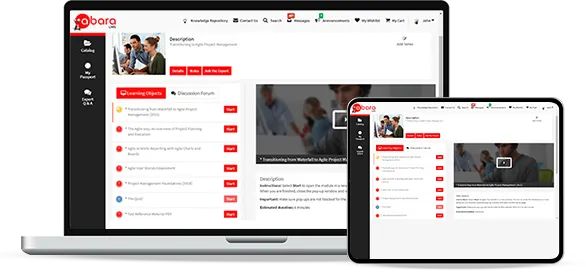Abara LMS for Corporate Training and Development
Abara LMS is a full-feature LMS supporting blended learning in any corporate setting. The LMS supports digital learning like SCORM compliant courses, videos, digital documents like PDF, PPT, Word, live virtual training via Zoom/WebEx, and in person classroom training.
LMS with Wide Range of Uses
Abara LMS for corporate training can be implemented for both segmented and organization-wide use. Training facilitators can use the LMS to train specific departments and verticals or deploy the LMS for every employee in the organization to access.
Moving informal or traditional classroom training and paper-based assessments to digital formats is the first step towards implementing better processes.


The Best LMS for Corporate Employee Training
Abara LMS supports multiple use cases within corporate learning/education and training settings. These include:
Are you ready to experience cloud-based corporate training LMS? Speak to one of our experts today.

